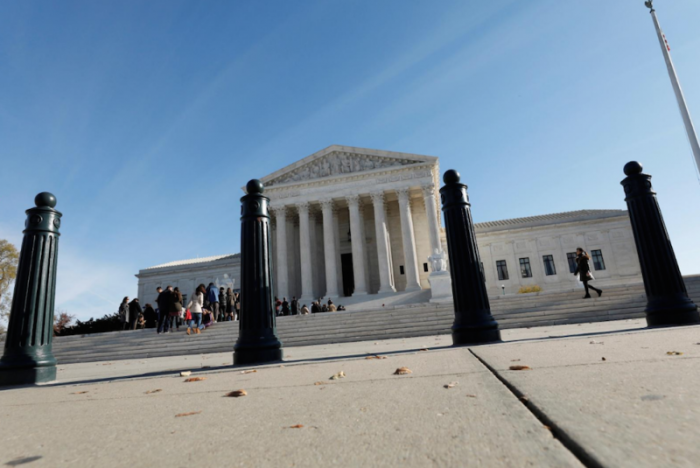Same-Sex Spouses Can Be Denied Certain Benefits; Supreme Court Leaves Texas Decision in Place

The U.S. Supreme Court on Monday refused to hear Houston's appeal of a lower court ruling that threw into doubt the city's spousal benefits to gay married municipal employees, allowing a case that tests the reach of the landmark 2015 decision legalizing same-sex marriage nationwide to proceed.
The justices left intact a June ruling by the Republican-dominated Texas Supreme Court that revived a lawsuit backed by a conservative group that advocates "biblical, Judeo-Christian values" aimed at blocking Houston from offering such benefits.
The high court's action set no nationwide precedent but may give a boost to conservative legal efforts to limit the effects of its decision in the case Obergefell v. Hodges that the fundamental right to marry is guaranteed to gay couples under the U.S. Constitution.
The case will now proceed in a Texas state court, which could decide to stop the benefits offered by the fourth most populous U.S. city. Such a ruling again could be appealed to the nation's top court.
In another case involving the scope of protections provided by the Obergefell decision, the Supreme Court in June overturned a state court ruling that had allowed Arkansas to refuse to list both same-sex spouses on birth certificates.
The Supreme Court on Tuesday will hear another important case involving gay rights, a conservative Christian baker's assertion that the Constitution protected his right to refuse to make a cake for a gay married couple in violation of his religious beliefs.
The Houston case began in 2013 when Jack Pidgeon, a local Christian pastor, and Larry Hicks, an accountant, sued the city after Annise Parker, a Democrat who was its first openly gay mayor, gave municipal spousal benefits such as health insurance and life insurance to same-sex married couples.
Pidgeon and Hicks argued that the benefits violated the state's constitution and state and local laws against same-sex marriage. They are backed by Texas state Republican leaders and the conservative advocacy group Texas Values. The men had urged state's highest court to "save Texas from unchecked ideological rulings from the federal judiciary."
A state trial court initially sided with the two challengers, but after the 2015 Obergefell decision, an appeals court reversed that ruling.
Lawyers for Pidgeon and Hicks told the state Supreme Court that the Obergefell ruling should be interpreted narrowly and did not require states to give taxpayer subsidies to same-sex couples any more than the U.S. Supreme Court's 1973 Roe v. Wade decision legalizing abortion required states to subsidize abortions.
"It is clear that the current Supreme Court will continue to use its power to advance the ideology of the sexual revolution until there is a change of membership," their lawyers added.
In June, the Texas Supreme Court threw out the ruling favoring Houston, agreeing that the Obergefell decision "did not hold that states must provide the same publicly funded benefits to all married persons," and remanded the case back to the trial court to allow the men to plead their arguments again.
The city and current Houston Mayor Sylvester Turner, also a Democrat, appealed to the U.S. Supreme Court, saying the dispute had already been settled because the Obergefell ruling extended to married same-sex couples the "constellation of benefits that the states have linked to marriage."





























